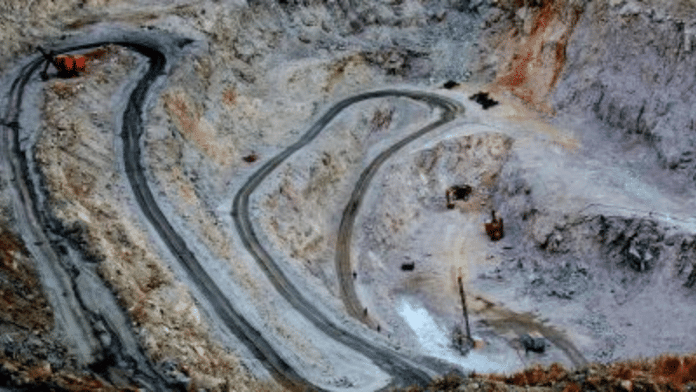New Delhi: Australia has reportedly rejected a bid by Austroid Corporation, a company with ties to China, to take over Alita Resources Ltd, a struggling lithium miner.
According to reports, the decision, which was made by the Foreign Investment Review Board (FIRB), was announced by a spokesperson for Treasurer Jim Chalmers Friday.
It is the second time this year that FIRB has blocked a Chinese company from investing in Australia’s critical minerals sector. In February, FIRB reportedly stopped Yuxiao Fund, a Chinese investor and the largest shareholder of Northern Minerals, a rare earth miner, from increasing its stake, citing national interest concerns.
The move comes amid rising tensions between Australia and China over trade and security issues. Last week, Australian Foreign Affairs Minister Penny Wong met with Chinese Foreign Affairs Chief Wang Yi, who reportedly urged Australia to provide a “fair, just and non-discriminatory” environment for Chinese businesses.
The prohibition order prevents Austroid Corporation from acquiring an additional 90.10 percent of lithium miner Alita Resources, which would have increased its ownership to 100 percent. Alita Resources owns the Bald Hill Lithium and Tantalum mine in Western Australia, which reportedly exports to China.
Mike Que, the director of Austroid Corporation, is the son of Chinese businessman Que Wenbin, who owns a significant stake in Sichuan Western Resource, a manufacturer of lithium batteries.
Que also served as the director of China Hydrogen Energy Limited (CHEL), a Cayman Islands-based business that was unsuccessful in 2019 to acquire Alita after failing to obtain FIRB permission.
Meanwhile, Austroid Corporation said it was “shocked and disappointed” by the Australian government’s decision and warned that it could have negative consequences for the Bald Hill mine’s operations.
Also Read: India releases list of 30 critical minerals crucial for ‘economic development, national security’
Australia’s lithium reserve
Australia is reportedly the world’s largest supplier of lithium and other critical minerals, such as rare earths, which find use in electric vehicles and defence equipment. It is seeking to boost trade with the US and its allies as part of a global effort to reduce reliance on China for these strategic resources.
Bald Hill Lithium and Tantalum mine — a mine located around 60 km southeast of Kambalda, Western Australia — was jointly owned by Alliance Mineral Assets and Tawana Resources. After their merger in 2018, the name was changed to Alita Resources.
The mine has estimated reserves of 11.3 million tonnes of lithium ore and 2 million tonnes of tantalum ore. According to The West Australian, a local daily newspaper, the mine could be put up for sale soon due to the rejection of Austroid’s bid.
In a speech last year, Chalmers said Australia would become more selective about who it let invest in the critical minerals industry.
The move is significant as China reportedly dominates critical minerals processing, accounting for more than 70 per cent of global rare earths production and holding large investments in lithium and other mining and processing operations in Australia, Africa and South America.
Last month, Resources Minister Madeleine King in an interview reportedly said that Australia’s Critical Minerals Strategy aimed to ensure that Chinese investment in the sector was assessed “strategically” as the two countries compete in lithium refining.
(Edited by Richa Mishra)
Also Read: ‘Weaponisation of trade’, ‘resilience of supply chains’ — what new foreign-policy buzzwords mean






